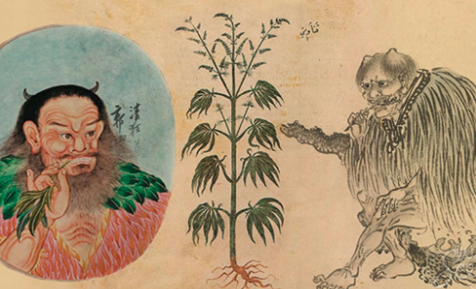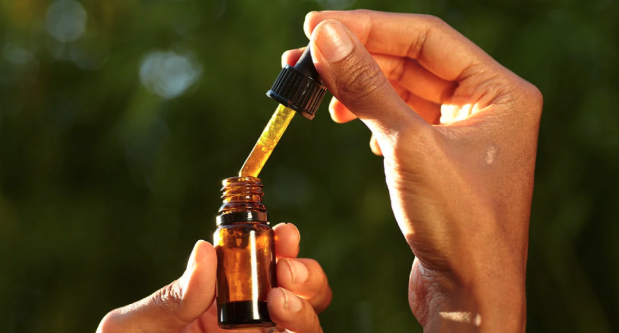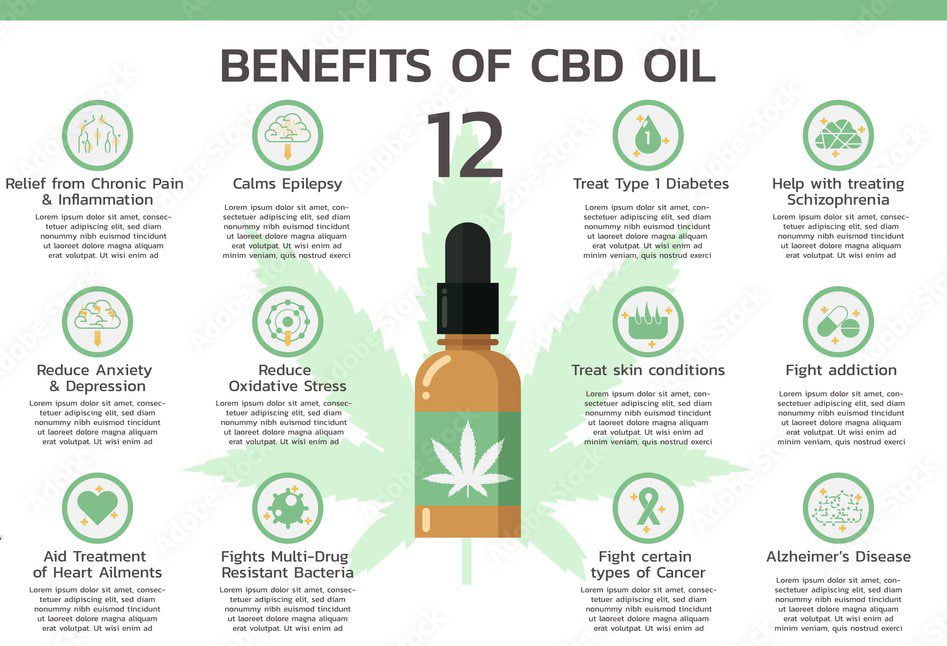
To many, cannabis has always been a special player in the category of natural remedies and medicine. Containing over 100 different cannabinoids, with cannabidiol (CBD) and delta-9-tetrahydrocannabinol (THC) being the most well-known and documented, cannabis is exponentially gaining traction for its potential to alleviate various medical conditions.
For the everyday person, pain management stands out as one of the most compelling uses of cannabis as a natural medicinal remedy. The two main compounds interact with the body’s endocannabinoid system, helping to regulate pain, mood, appetite and memory. This interaction with our body acts as the basis for many of the potential therapeutic effects of cannabis.
Because of this, as patients seek natural solutions to their chronic health issues, they may find positive effects in turning to cannabis as an alternative to synthetic pharmaceuticals.
A historical perspective
For over a millennia, cannabis was widely used for its medicinal properties. Ancient cultures ranging from the Chinese to the Greeks utilised cannabis for its therapeutic properties.
Ancient Chinese civilisations used the plant to treat various conditions, including pains associated with childbirth, rheumatic pain and malaria. Documented ancient texts have also shown cannabis being used to treat conditions like arthritis and postoperative pains.

Only in recent decades, after the scientific breakthroughs in modern medicine, have modern-day scientists rediscovered cannabis’ true medicinal potential in treating patients with chronic pains. Today’s applications involve various forms of cannabis, from oils to edibles, to topical applications.
Cannabis and chronic pain
A significant area where cannabis has shown the most promise is in the management of chronic pain. As a condition affecting millions of people worldwide, chronic pains can be difficult to pinpoint and treat with conventional medications, even with the advancements in modern medicinal technology.
Studies and countess user reports suggest that cannabis can indeed offer relief for various types of chronic pains. A comprehensive review of over 10,000 studies confirmed the effectiveness of cannabis as a natural remedy.
Additionally, in one study, over 65% of users reported that substituting traditional medicine for cannabis yielded positive results, ultimately garnering a more effective result in treating chronic pains.
The overall potential of cannabis as a pain management tool become ever more significant amid the ongoing opioid crisis, where addiction and overdose risks are increasingly shrouded in normalcy.
Many patients reported successes in reducing or eliminating their usage of opioids as pain medications, instead starting a cannabis-based treatment plan, with studies indicating that cannabis may reduce opioid use by up to 64% among chronic pain patients.
Cannabis and neurological disorders
Beyond chronic pain, cannabis has shown great promise in treating numerous neurological disorders, namely in treating certain types of epilepsy. Treating rare forms of epilepsy, such as Dravet syndrome was met with great levels of success when treated with CBD-based medication.
The FDA’s approval of Epidiolex, a form of CBD-based medication not only marks a significant milestone in the medical usage of cannabis-based products but also represents a slight shift in reincorporating the usage of natural remedies in treating medical disorders.
Cannabis has also been extensively studied for its potential in managing symptoms of multiple sclerosis (MS), a chronic disease which affects the central nervous system, including the brain and spinal cord.
Many MS patients report drastic improvements alongside cannabis use, with many patients often finding its usage more effective than conventional treatments.
Mental health and cannabis

Mental health is another crucial area where cannabis has shown great potential as a natural remedy. Although a broad term, many users reported benefits in managing conditions such as anxiety, depression, and post-traumatic stress disorder (PTSD).
CBDs in particular have been shown to have anti-anxiety properties, with some studies suggesting that cannabis may enhance mood and cognitive functions in certain individuals suffering from mental health issues.
However it must be kept in mind that the relationship between cannabis and mental health is often a complex ordeal, there are many nuances in its usage. While some users report positive effects, others may find that cannabis can exacerbate their mental health symptoms, especially for those with a history of suffering from psychosis or bipolar disorders.
Different cannabis strains may have vastly different side effects on your underlying condition. Professional guidance is crucial if you are unsure of how to approach different treatment options.
Cannabis vs. Modern Medicine
In comparing cannabis to modern medicine, it is essential to consider its efficacy, dosage levels and side effects. But even with this in mind, many users find cannabis to be more effective than prescription drugs in dealing with their conditions and with milder side effects.
In one study, 85.5% of respondents revealed that the side effects of modern prescription medications were more intense than the effects experienced with cannabis use.

However, cannabis does not come without its risks. Side effects may include dizziness, impaired memory, and potential for addiction, especially with cannabis products with a higher THC percentage.
Like with most natural medicinal remedies, the vast availability of cannabis products on the market can lead to inconsistent effects, ultimately having the potential of making them less reliable, or less effective than standardised pharmaceutical medications.
A major advantage of modern medicine lies in its rigorous clinical testing and standardisation of dosages. This practice is yet to be fully established for many cannabis-based products, which highlights the need for more in-depth research processes and clinical trials to fully understand the efficacy and safety of using cannabis as a medicinal treatment.
The options available to you
In choosing between sativa or indica strains, both have shown great potential as a natural medicinal remedy, but each of them goes at it in their own ways.
Sativa strains can be chosen for their uplifting effects to help improve your mood and overall energy levels, but they may not be as effective in alleviating pain once compared to indica strains which are generally preferred for pain management. Users of this strain reported improvements in non-migraine headaches, joint pains, and muscle spasms.
CBD oils are a great option due to their anti-inflammatory potential which can help reduce pains without the psychoactive properties of THC-based products. CBD oils directly interact with your body’s endocannabinoid system to modulate pain perception.

Does cannabis have the potential as a natural remedy?
Ultimately cannabis does show great promise as a natural remedy for various medical conditions. Its usage has been most well-documented in treating chronic pain, certain neurological disorders, and some mental health issues.
Patients report finding relief in using cannabis-based products when conventional treatment methods have either failed or caused intolerable side effects. While the potential benefits may be significant in some patients, more rigorous research is needed to fully understand and establish the efficacy and safety of its usage compared to modern treatment options.





